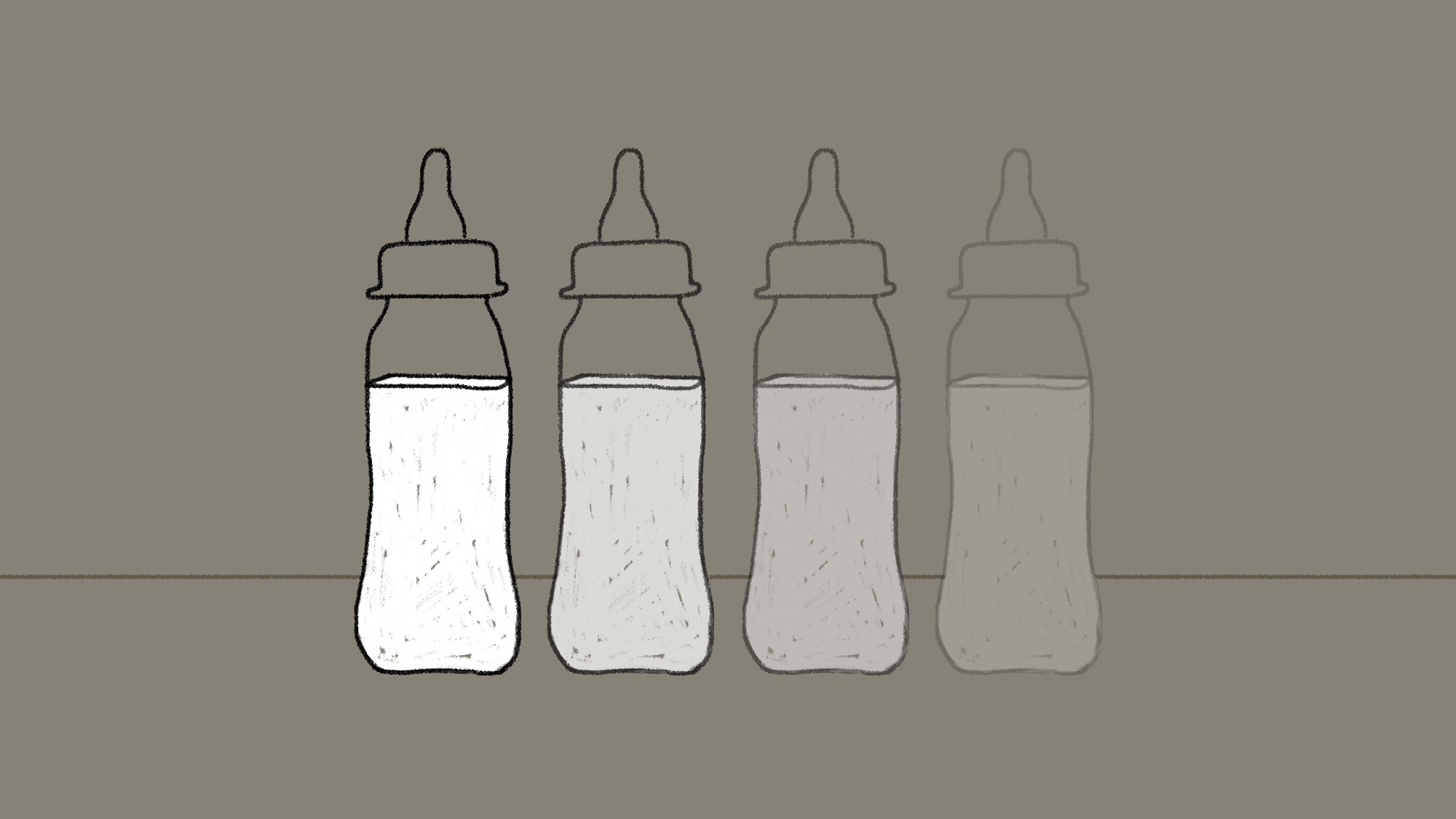This is an edition of The Atlantic Daily, a newsletter that guides you through the biggest stories of the day, helps you discover new ideas, and recommends the best in culture. Sign up for it here.
Amid all the news coverage of the GOP’s spending-bill extravaganza—the late-night deficit debates, the strategy sessions, the hallway blanket-wearing—one piece of the package has received comparatively little attention: a provision that would block abortion clinics from receiving Medicaid funds for any of the non-abortion services they provide.
During the past three years, abortion restrictions have mostly taken effect mostly in red and purple states—where legislatures have voted to enact them. But if this proposed provision passes, clinics all over the country will be affected. It would “have a pretty devastating impact on a lot of providers,” Mary Ziegler, a legal scholar and an Atlantic contributor, told me. Some would probably close, and others would have to limit the number of patients they serve. It’s “a really big deal,” she said, with perhaps the most significant consequences for abortion access since the passage of the 1976 Hyde Amendment, which bans federal funds for abortions in most cases.
All of this is complicated—which helps explain the dearth of attention to the matter. But funding for independent abortion providers works like this: Clinics receive money from a variety of sources, including local donations, insurance payments, and Medicaid reimbursements. (Yes, the Planned Parenthood Federation of America receives millions in contributions every year, but most of those funds are earmarked for advocacy, Ziegler told me.) A big percentage of Planned Parenthood’s patient pool relies on Medicaid. In keeping with the Hyde Amendment, providers are not reimbursed for abortions, but they do receive federal payments for other services, such as breast-cancer screenings, Pap smears, and STI testing. This new legislation would make Planned Parenthood and other clinics ineligible for any kind of Medicaid reimbursement, Ziegler said.
If clinics are not paid for these services, then, in many cases, they won’t be able to provide them. Maybe some clinics would be able to find funds from state legislatures or local donors to fill in the gaps, but many wouldn’t. An initial version of the bill passed by the House would have blocked Medicaid funding for 10 years, but the current version, which passed the Senate earlier today, would prohibit that funding for just one year after the law’s passage. (That’s right—we’ll all be back here again soon.)
The cuts represent a pretty clear departure from President Donald Trump’s “leave it to the states” approach to abortion policy. They’d affect clinics everywhere, not just in places where Americans have grown accustomed to hearing about abortion restrictions. Most Planned Parenthood clinics at risk of closure under the bill are in states where abortion is legal, the organization says. That’s partly because more blue states have recently expanded Medicaid. Up to one-third of patients at Planned Parenthood of Northern New England, for example, are on Medicaid, and reimbursement totals in the millions of dollars, PPNNE CEO Nicole Clegg told me. “We’ll work with our state leaders” and increase local fundraising efforts, she said. But it will be difficult to make up the difference.
The bill’s passage is part of an abortion one-two punch: Last week, the Supreme Court made it easier for states to deny Medicaid funding to Planned Parenthood. “This is tremendous progress on achieving a decades-long goal that has proved elusive in the past,” Marjorie Dannenfelser, the president of Susan B. Anthony Pro-Life America, told me in a statement about the SCOTUS decision and the GOP bill. “This proves what we’ve said all along: Congress can cut Planned Parenthood’s funding—and they just did,” Kristan Hawkins, the president of Students for Life of America, wrote on X about the bill. “The moral obligation is clear: If we can do it for 1 year, we must do it for good.”
The events of this week also represent a slight strategy change. Reporters like me who have long covered the anti-abortion movement anticipated that, under the second Trump presidency, activists would shift their efforts in a different direction: attempting to outlaw abortion via the 1873 Comstock Act. Many who follow this debate agree that they probably still will. But so far, Trump “hasn’t really been doing a lot of what the anti-abortion movement has wanted,” Ziegler said. She wonders whether it was “a self-conscious decision to go where they thought Republicans already were”—to work toward withholding funding, which is probably politically safer for the GOP than pursuing a relatively unpopular outright abortion ban.
Next stop: the House of Representatives. Lawmakers there took up the bill today and want to make it law by Friday. But defenders of abortion access are keeping an eye out. As always, with a razor-thin Republican majority, anything could happen.
Related:
Here are three stories from The Atlantic:
- A big, bad, very ugly bill
- Jonathan Chait: Congressional Republicans didn’t have to do this.
- A classic childhood pastime is fading.
Today’s News
- President Donald Trump visited “Alligator Alcatraz,” a makeshift migrant-detention center in the Florida Everglades, and said that he wants to see more detention centers in “many states.”
- Trump wrote in a social-media post that the Department of Government Efficiency might need to reexamine government subsidies for Elon Musk’s businesses.
- Zohran Mamdani officially won New York City’s Democratic mayoral primary by 12 points.
Evening Read

The Birth-Rate Crisis Isn’t as Bad as You’ve Heard—It’s Worse
By Marc Novicoff
First, the bad news: Global fertility is falling fast. The aging populations of rich countries are relying on ever fewer workers to support their economy, dooming those younger generations to a future of higher taxes, higher debt, or later retirement—or all three …
By about 2084, according to the gold-standard United Nations “World Population Prospects,” the global population will officially begin its decline. Rich countries will all have become like Japan, stagnant and aging. And the rest of the world will have become old before it ever got the chance to become rich.
Sorry, did I say “bad news”? That was actually the good news, based on estimates that turned out to be far too rosy.
More From The Atlantic
- Canada’s terrible new freedom
- What a “spiral of silence” can do to a democracy
- The dark poetry of the Bezos wedding
- How Claire McCardell changed women’s fashion
Culture Break

Watch. F1 (out now in theaters) threads the nitty-gritty details of Formula One racing into a traditional underdog drama, David Sims writes.
Read. Soft Core, by Brittany Newell, is a noirish novel set in the world of strip clubs and BDSM dungeons that ventures beyond titillation and into the daily grind, Lily Burana writes.
Stephanie Bai contributed to this newsletter.
Explore all of our newsletters here.
When you buy a book using a link in this newsletter, we receive a commission. Thank you for supporting The Atlantic.
The post The Biggest Anti-Abortion Victory Since ‘Dobbs’ appeared first on The Atlantic.




